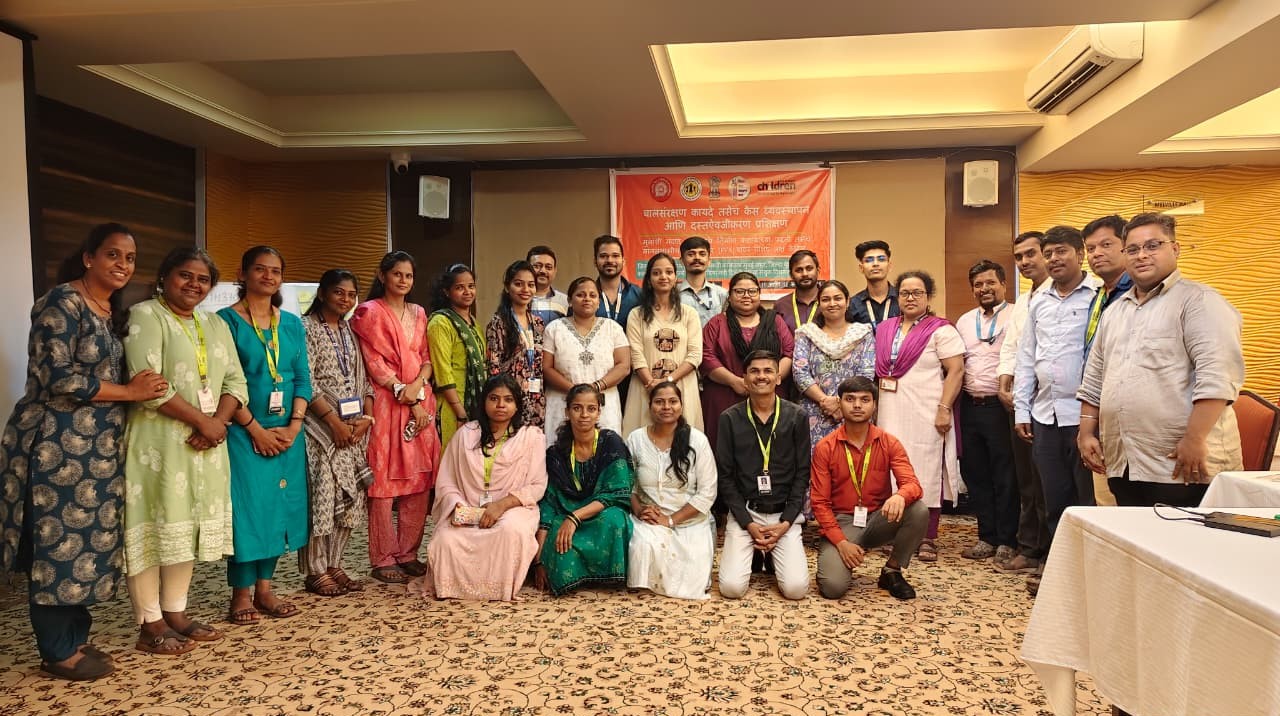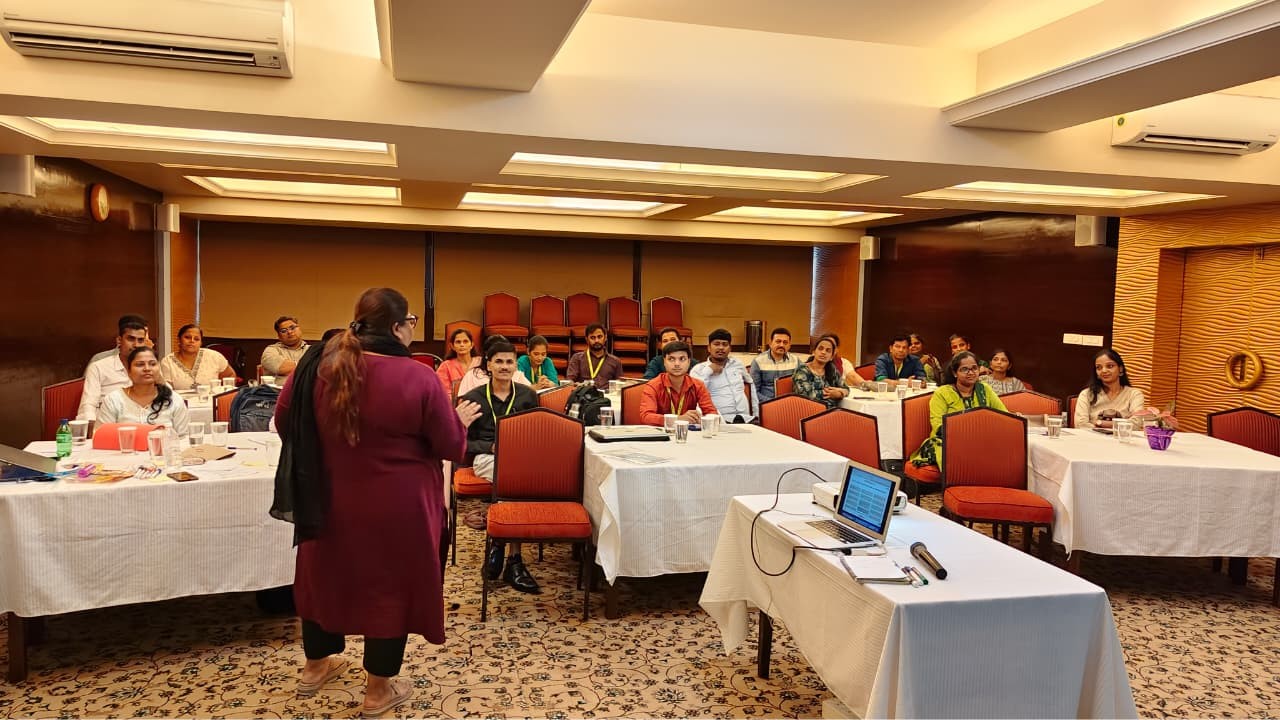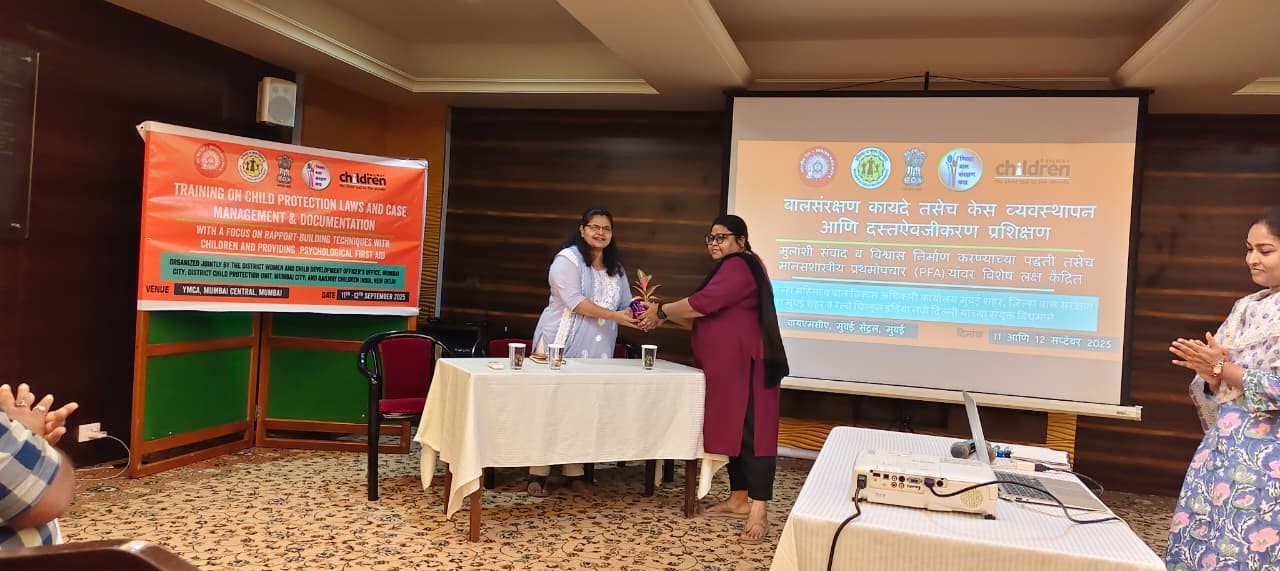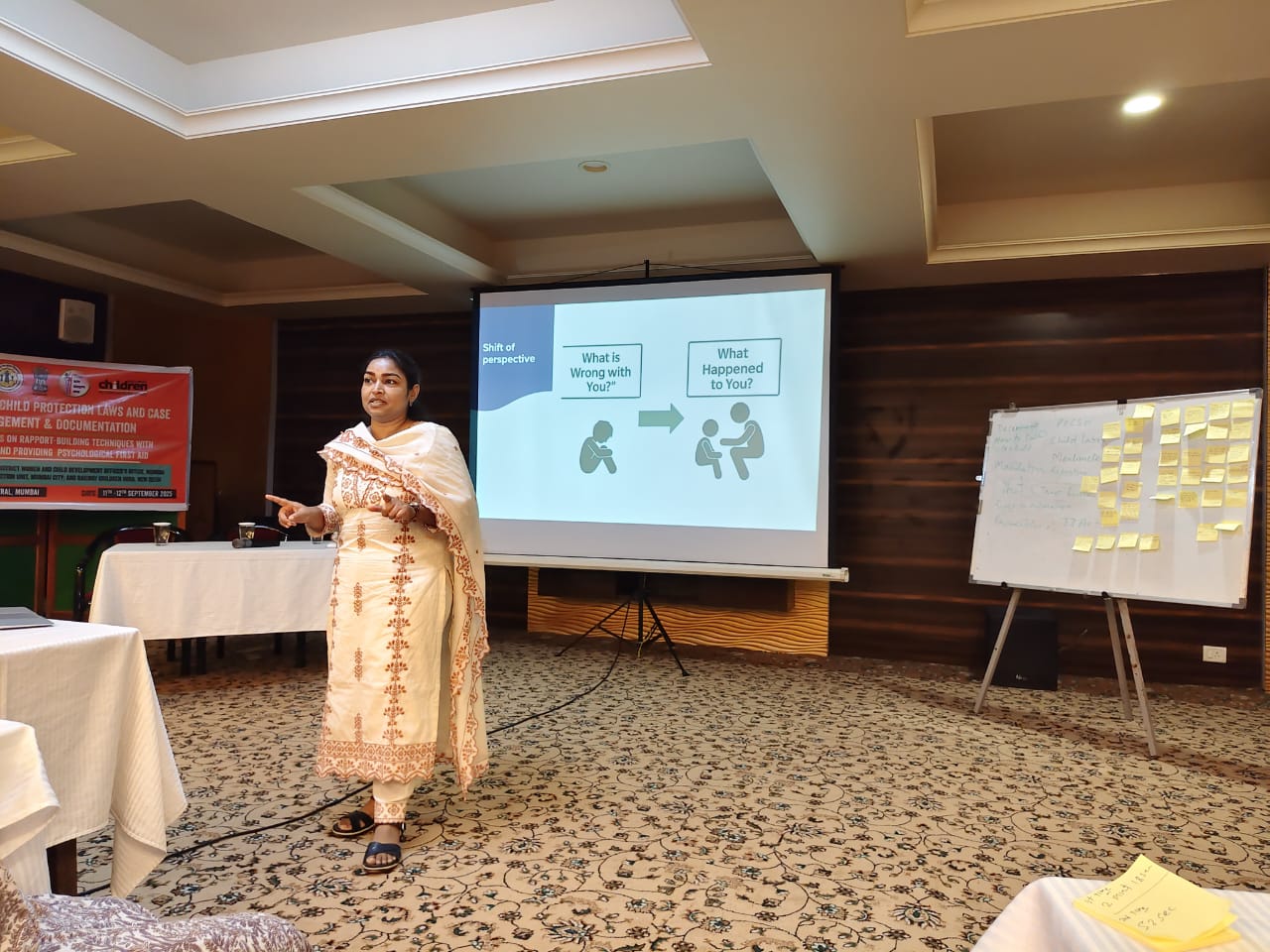The protection of vulnerable children who wander into bustling transport hubs—aimless, lost and distressed—remains incomplete without the intervention of the District Child Protection Unit (DCPU). Guided by crucial legislations such as the Juvenile Justice Act, the POCSO Act, and the Prohibition of Child Marriage Act, DCPU officials play a central role in ensuring safety and care for at-risk children.
Yet, child protection goes beyond laws alone. It also requires the ability to understand a child’s emotions, listen to their unspoken fears, and respond with empathy in moments of distress. These skills are as vital as legal knowledge in delivering the best possible care to children in need.
To sharpen these abilities and strengthen the safety net around children, team Railway Children India (RCI) recently convened key stakeholders in Mumbai for an intensive two-day refresher training.
Held on 11th and 12th September 2025, in partnership with the DCPU and the Women and Child Welfare Department, the workshop became a space where knowledge met practice, and collaboration turned into collective strength.
Making Child Protection Laws Practical
While the sessions revisited important legislations, such as the Juvenile Justice Act, POCSO Act, and the Prohibition of Child Marriage Act, the session also guided participants to apply the law in real-world case management.
Special attention was given to mental health and psychosocial support, helping stakeholders understand how to communicate with children in distress while respecting their inner voice. Officials present clarified finer points of the laws, making the learning even more relevant for field realities.
Learning Through Scenarios, Not Lectures
What made this training stand out was its activity-based methodology. Instead of lengthy presentations, participants engaged with realistic scenarios and interactive exercises. The relatable situations kept them attentive and curious, and many shared that it was one of the most engaging trainings they had attended. This approach transformed legal concepts into practical tools that frontline staff could confidently use in their daily work with children.
Guidance from Key Leaders
The workshop was enriched by the presence of Ms. Shobha Shelar, Women and Child Development Officer, who attended both days. She emphasized that while earlier trainings had been valuable, this session needed to be application-oriented—and she was pleased to see that goal achieved.
Collaboration in Action
Co-led by Ms. Nida Zamani, Lead Child Safeguarding and Family Reintegration Officer, and Ms. Nikita Kataria, Child Safeguarding Officer, this 2-day workshop was not only informative but also inspiring, leaving participants with greater confidence in their roles.
The collective spirit—bringing together Childline representatives, DCPU officials, and RCI’s team—was a reminder that child protection is never the responsibility of one actor alone.










